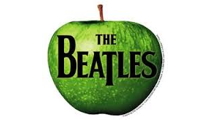This website uses cookies so that we can provide you with the best user experience possible. Cookie information is stored in your browser and performs functions such as recognising you when you return to our website and helping our team to understand which sections of the website you find most interesting and useful.
Business News Labels & Publishers Legal
Beatles release confirms intricacies of copyright extension
By Chris Cooke | Published on Friday 20 December 2013
The release of a bunch of Beatles rarities on iTunes earlier this week has confirmed some specifics about the much previously reported copyright term extension for sound recordings.
It emerged that a new collection of 59 Beatles recordings was about to be released last week, including demos, outtakes and BBC sessions. The digital compilation has been released as part of the exclusivity deal between the Fab Four’s company Apple Corps and record label (now Universal Music) and the other Apple and its iTunes store.
So, a nice treat for Beatles fans, though with all the tracks, previously unreleased, coming from 1963 it quickly became clear something else was going on here too.
As much previously reported, until recently the copyright term for sound recordings was 50 years, meaning records released in 1963 would become public domain in Europe next month. But, after much lobbying from the record industry, the term was extended to 70 years, meaning The Beatles catalogue (‘Love Me Do’ aside) now has an extra 20 years of copyright protection.
However, there’s a catch. The copyright term in the sound recording is linked to the date the recording was made, or the date the recording was released. Normally those dates are pretty close to each other so that the distinction isn’t so important. But what it means is that labels sitting on unreleased recordings that are nearing the end of their copyright term can, in essence, reboot the copyright by releasing the record (or even just giving it a public performance). Though that late-in-the-day release must occur before the copyright term based on recording date ends.
Or even sooner, as it turns out. Because the deadline for releasing unreleased recordings to reset the copyright term has stayed at 50 years, because the copyright in unreleased master recordings will still expire after five decades (in that such recordings are not included in the European Directive that extended the term). Hence Universal and Apple Corps needed to give the 1963 bootlegs an official release now, rather than in 20 years time, to ensure copyright term reboot, and to stop the recordings from going public domain.
Earlier this year Sony did something similar with some Bob Dylan archive recordings, and you can expect all the major labels to be releasing collections of previously unheard records from their most bankable artists in the coming years as the 50 year deadlines expire.
As also previously reported, the copyright extension, which came into effect on 1 Nov, also includes a use-it-or-lose-it element which enables any musician involved in a recording which a label is not currently distributing – including session musicians and producers – to force the record company to put out a physical and digital version of the track or album, or risk losing their economic rights over the copyright work.
The use-it-or-lose-it element was included because politicians were persuaded of the need for copyright extension based on the benefits to performers rather than labels, and performers only get those benefits if a label ensures a recording is in circulation. However, it turns out that the use-it-or-lose-it clause is not relevant to The Beatles release, which is why Universal and Apple only need to put out a cheap and cheerful digital album, and not a full-blown CD box set.






